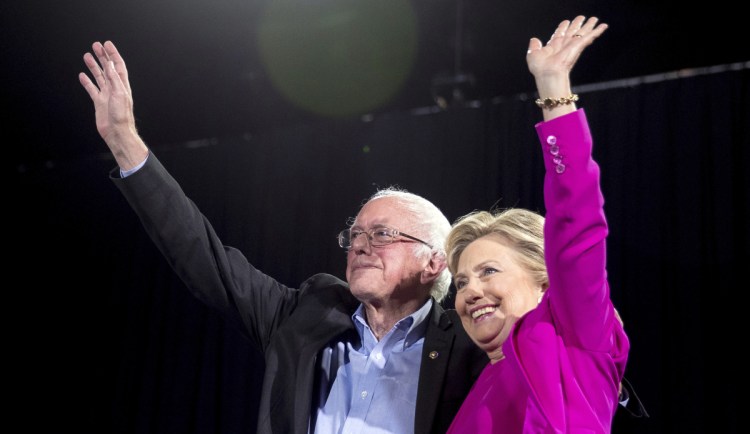CHICAGO — After two years of sometimes ugly public fighting, Democratic Party leaders on Saturday voted to limit their own high-profile roles in choosing presidential nominees, giving even more weight to the outcome of state primaries and caucuses.
The debate over the influence of party insiders known as superdelegates was evidence of the fallout from the 2016 fight between eventual nominee Hillary Clinton and Vermont Sen. Bernie Sanders. His supporters accused the national party of tipping the scales in Clinton’s favor.
The change, which affects the hundreds of Democratic National Committee members, elected officials and party elders who attend presidential conventions as utomatic delegates, was seen as a victory for the party chairman, Tom Perez. It comes with the November election nearing, when Republican control of Congress is at stake, and a potentially bruising nominating battle shaping up for 2020.
“We should never ever confuse unity and unanimity,” Perez said after the vote. “Today, demonstrated the values of the Democratic Party.”
Under the new rules for 2020, superdelegates still will be automatic delegates to the party’s convention. But they will not have a vote on the first presidential ballot if the convention remains contested, which is a possibility given the number of Democrats considering running.
Superdelegates would get to vote on any subsequent rounds of voting, though the Democratic nomination has been settled on the first ballot of every convention since the 1970s, when the modern system of primaries and caucuses was established.
The change was approved by acclamation and drew a standing ovation from progressive activists, many of them among the Sanders supporters who had cited superdelegates as the personification of establishment favoritism toward Clinton.
“This is a great day for America and for the party,” said Jeff Weaver, Sanders’ 2016 campaign manager. “When you have a system subject to gaming, there is incentive to game it. To the extent the system can’t be gamed, you have more credibility with voters.”
In a written statement, Sanders called the move “an important step forward in making the Democratic Party more open, democratic and responsive to the input of ordinary Americans.”
Send questions/comments to the editors.



Success. Please wait for the page to reload. If the page does not reload within 5 seconds, please refresh the page.
Enter your email and password to access comments.
Hi, to comment on stories you must . This profile is in addition to your subscription and website login.
Already have a commenting profile? .
Invalid username/password.
Please check your email to confirm and complete your registration.
Only subscribers are eligible to post comments. Please subscribe or login first for digital access. Here’s why.
Use the form below to reset your password. When you've submitted your account email, we will send an email with a reset code.